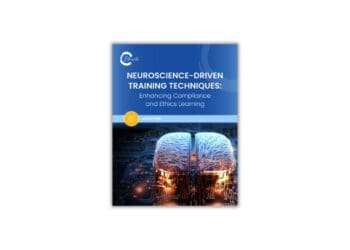Phishing is often cited as responsible for more than 90% of all breaches. KnowBe4 founder and CEO Stu Sjouwerman provides practical guidance on how to mitigate this leading cyber risk.
Sponsored
Phishing is perhaps the greatest security risk that organizations face today. While companies tend to focus their cybersecurity efforts on technical defenses, the truth is that most cyberattacks take advantage of human fallibility. Data breaches and security incidents often start with phishing attacks, as Verizon’s 2020 Data Breach Investigations Report makes clear.
Successful cybercriminals take advantage of people, exploiting their usual pattern of thinking to gain access to personal information and accounts. Certain cognitive biases are widespread and extremely detrimental to online security, but this is not an insurmountable problem. With the right security awareness training, you can build a company culture that’s naturally resistant to cyberattacks and resilient in the face of security incidents. (Note: my company offers a suite of free phishing tools to phish your own employees.)
Cognitive Biases
Before you tackle the problem, it may be helpful to understand the psychology of phishing victims. A paper by Georgia Crossland, Ph.D. researcher at the Centre for Doctoral Training in Cyber Security, highlights two major psychological issues that lead people to misjudge potential security threats: overconfidence and fatalistic thinking.
“It Will Never Happen to Me”
Whether you call it optimism bias or overconfidence, people are alarmingly good at seeing risks in society and erroneously deciding that they only apply to other people. This leads most people to believe that they are less likely than others to experience negative events, from contracting a virus to being in a car crash to becoming the victim of an online scam.
“It’s Going to Happen Anyway”
Fatalistic thinking is also very common. Sometimes people feel that certain risks are beyond their control. They may decide that there’s nothing they can do to prevent these things from happening, so what’s the point of trying? If you believe that phishing attacks are inevitable, then you may decide it’s not worth taking precautions.
While this sounds like the opposite of overconfidence, the two thought patterns lead to the same endpoint: People fail to act to prevent or reduce risk. This creates a foundation for scammers to build upon.
Social Engineering
Cybercriminals rely upon social engineering to trick victims into replying to bogus emails, volunteering personal information, clicking on links to malware and opening attachments containing malware. Classic phishing techniques are all about emulating something familiar to the person being targeted, whether it’s a bank, an online service they use or the HR person of the company they work for. This familiarity leads victims to drop their guard.
Even well-crafted phishing scams usually contain telltale signs that people will often notice if they stop and think about it. That’s why cybercriminals create a false sense of urgency designed to persuade people to act immediately. This can be the carrot or the stick. For example, the threat that your account will be closed if you don’t respond quickly, or the promise of a pay out if you comply now.
By exploiting psychology, scammers can turn targets into victims.
Phishing is often just the first stage of a larger, more serious attack. It’s too easy to blame the victims here and decry employees as the weak link in your cybersecurity. But shaming people and pointing the finger is not an effective way forward. What organizations need to do is find a way to include employees, empower them and encourage a company culture that values security.
Security Awareness Training
It’s vital to have a mandatory security awareness training program in place for your employees, but there’s no reason it can’t be inclusive and fun. Rather than making it mandatory, training should engage participants and empower them. Make sure that you focus on rewarding the kind of behavior you want to see in the workplace and keep punitive action as a last resort.
Cybersecurity should be the responsibility of every employee, not an abstracted function of InfoSec professionals or IT departments.
If you get everyone to buy in, you can create a culture that dramatically reduces cybersecurity risks. A recent MIT Sloan Management Review article highlights three pillars of high-reliability organizations (HROs) that can be usefully applied to cybersecurity:
- Cultivate hypervigilance: People should be constantly watchful for any signs of cybersecurity threats, for themselves, the people around them and the wider organization. Speaking up should be encouraged and rewarded. When people turn a blind eye to potential issues, they grow into major problems.
- Respond quickly: Identify incidents swiftly and respond immediately. Having clear security procedures with established responsibilities and chains of communication will help enormously here. It’s crucial that people don’t bury their heads in the sand when security problems do inevitably crop up. The faster you react, the better your chances of limiting the negative impact of an incident.
- Share knowledge: Every failure is an opportunity to learn. Knowledge must be shared freely and widely. Security incidents should inform future policies. Successful cybersecurity strategies are constantly evolving and improving. People must work together and help each other to improve security company-wide.
Because smaller businesses may not have the same level of security resources, they tend to be easier targets for hacktivists. Traditional GRC offerings can be expensive and hard to manage without intervention by consultants. Going to the cloud offers reprieve on this front, and that’s where SaaS-based GRC platforms come into play. The KCM GRC platform (developed by my company KnowBe4) affords ready-made templates for quick compliance evaluations and reporting. Centralized policy distribution and tracking helps users remain compliant, as does flagging risky users.
While it won’t happen overnight, there are lots of easy, practical, useful steps you can take to overcome the psychology of phishing victims and improve your cybersecurity posture.
 KnowBe4, the provider of the world’s largest security awareness training and simulated phishing platform, is used by more than 33,000 organizations around the globe. Founded by IT and data security specialist Stu Sjouwerman, KnowBe4 helps organizations address the human element of security by raising awareness about ransomware, CEO fraud and other social engineering tactics through a new-school approach to awareness training on security. Kevin Mitnick, an internationally recognized cybersecurity specialist and KnowBe4’s Chief Hacking Officer, helped design the KnowBe4 training based on his well-documented social engineering tactics. Tens of thousands of organizations rely on KnowBe4 to mobilize their end users as the last line of defense.
KnowBe4, the provider of the world’s largest security awareness training and simulated phishing platform, is used by more than 33,000 organizations around the globe. Founded by IT and data security specialist Stu Sjouwerman, KnowBe4 helps organizations address the human element of security by raising awareness about ransomware, CEO fraud and other social engineering tactics through a new-school approach to awareness training on security. Kevin Mitnick, an internationally recognized cybersecurity specialist and KnowBe4’s Chief Hacking Officer, helped design the KnowBe4 training based on his well-documented social engineering tactics. Tens of thousands of organizations rely on KnowBe4 to mobilize their end users as the last line of defense.



 Stu Sjouwerman is founder and CEO of
Stu Sjouwerman is founder and CEO of 








